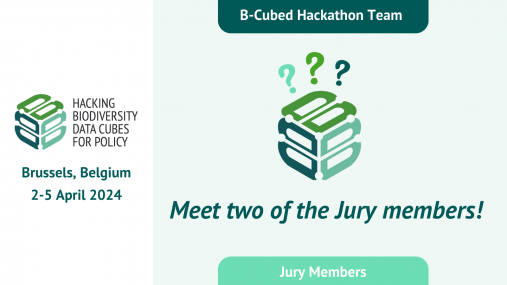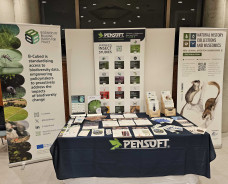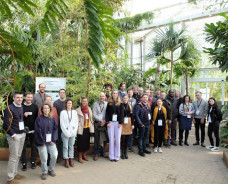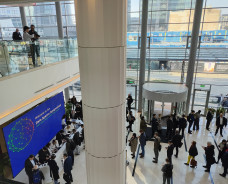B-Cubed is gearing up for its April Hackathon – a dynamic gathering of biodiversity informaticians, researchers, and practitioners in Brussels. The event aims to foster collaboration and address various biodiversity challenges by exploring data cubes.
The Hackathon is accepting project submissions until 17 December. You can submit your project here.
Throughout the four-day event, participants will receive guidance from technical coaches and scientific committee representatives, with multiple opportunities to attend keynote presentations.
To provide participants with insights into the variety of expertise that will be available at the Hackathon, B-Cubed will present some of the key event contributors through a series of news items.
Find out who are two of the jury members, who will judge all the innovative hackathon ideas.
Julien Radoux
Julien is a postdoctoral researcher from the Earth and Life Institute (Université catholique de Louvain, Belgium), who is mainly involved in Lifewatch-ERIC. “Lifewatch is a research infrastructure consortium providing data and services for biodiversity and ecosystem research.” With his background in remote sensing image analysis and GIS, he contributes to bridge the gap between the observable land cover variables and the monitoring of terrestrial ecosystems. Regarding B-Cubed’s hackathon, he shares: “Hackathons often bring to life disruptive ideas thanks to the concentration of energy in a short amount of time. Merging different data cubes has a huge potential to help decision makers take the right decision to restore biodiversity, therefore I am looking forward to assessing the future projects”.
Luc Lens
Luc is a Professor of Terrestrial Ecology at Ghent University interested in why some species are winners and others losers in an increasingly developed world. He studies birds as model taxa, integrating concepts and methods from behavioural and movement ecology, ecophysiology, population ecology, conservation genetics and animal cognition. For the Hackathon he shares: “Data cubes provide an essential mechanism for young scientists to unravel intricate ecological relationships in an increasingly complex world. They allow them to explore diverse ecological patterns and provide a means of interpreting interactions among them. Such insights into the complexity of our environment are needed more than ever to steer us towards a more sustainable future”.



